Getting trailers to fit my boats, and my trailers to fit the spaces I have available, has been a challenge. I shifted 10′ of rockery back about 3′ to make room for my son’s Escargot and trailer. For my Caledonia yawl I added a garden-window-like extension to the back of my garage to make room for the stern and cut a hole in the door at the front for the trailer tongue.
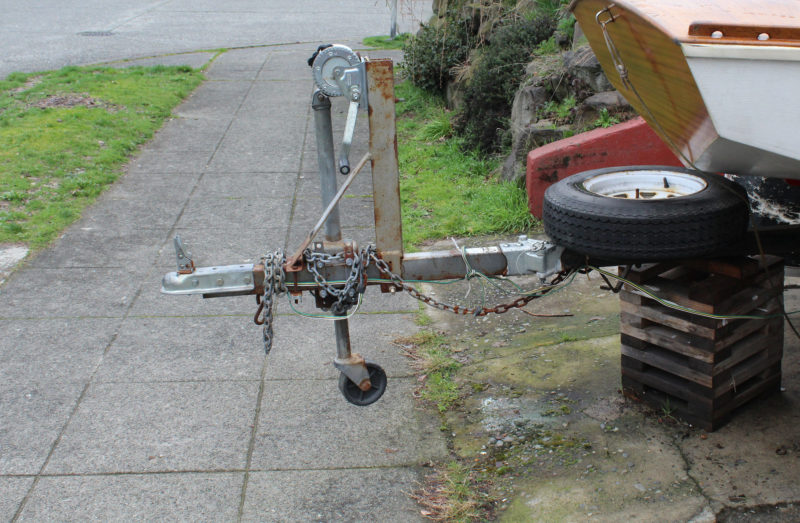 photographs by the author
photographs by the authorThe hinge made it possible to use a drift-boat trailer for longer boats. The instructions advise against mounting the jack and winch on the tongue extension, but in this case there wasn’t room enough on the original tongue.
When it came to parking my garvey cruiser at home, I had a spot in front of the house for the boat, but with three other trailers at home I didn’t have any options left for reconfiguring buildings and landscape to make a space long enough for a trailer with a tongue long enough for the garvey—it would stuck out into a public sidewalk. Only a hinged trailer-tongue would solved the problem.
A trailer-tongue hinge can do two things: it can make a trailer tongue shorter to fit a limited space, and it can make a tongue longer if you’re converting a utility trailer for use as a boat trailer. I had previously extended the tongue of one of those inexpensive utility trailers by replacing the entire tongue with a longer and sturdier rectangular steel tubing. (That was the tongue that stuck out of the mouse-hole at the bottom of my garage door.) For the 17′ garvey I’d bought a drift-boat trailer. It has a nice flat deck that works for my boat, but its tongue, meant for a 14′ drift boat, was too short. I couldn’t just replace the tongue with something longer, as it would stick out over the sidewalk. A Fulton Fold-Away Hinge kit made it possible to have the length I need for towing, and keep the trailer short when parked.
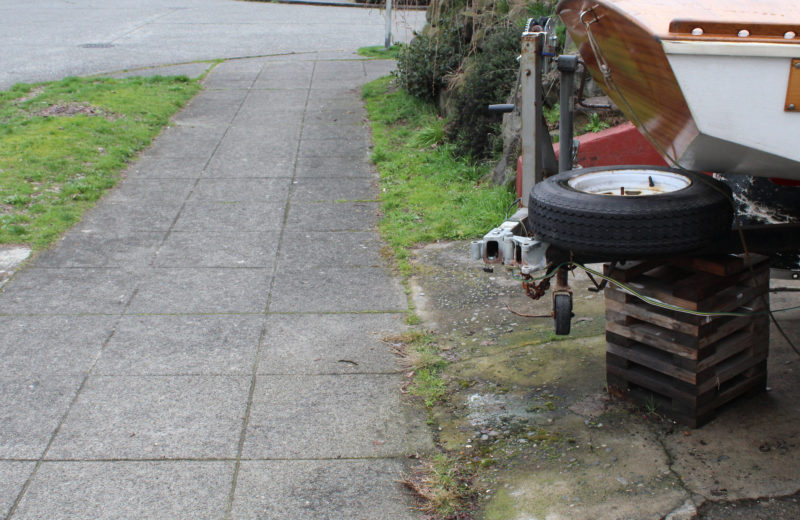
Being able to fold the tongue out of the sidewalk made it possible to use a parking space too short for a full-length tongue.
The hinge is made of zinc-plated, die-cast steel, and has a 19/32″ removable hinge pin and fixed pivot bolt. The kits fit 2″ x 3″, 3″ x 3″, 3″ x 4″, and 3″ x 5″ trailer tongues. I bought the 2″ x 3″ kit from West Marine and 3′ of 2″ x 3″ steel from a local metal supplier to match the existing tongue. The Fulton website has instructions that include tables of the tongue-extension length limits for various gross trailer weights and maximum tongue loads.
The 3′ extension I added to the tongue was well within the 3,500-lb gross trailer-weight limit and 350-lb tongue load listed for the 2″ x 3″ hinge. I removed the coupler and drilled holes according to the instructions for the bolts that secure the hinge; after the bolts were installed, I reinstalled the coupler. The safety chains must remain connected to the main part of the tongue, not on the swinging section, to do any good if the hinge fails. I installed longer chains to reach past the added length.
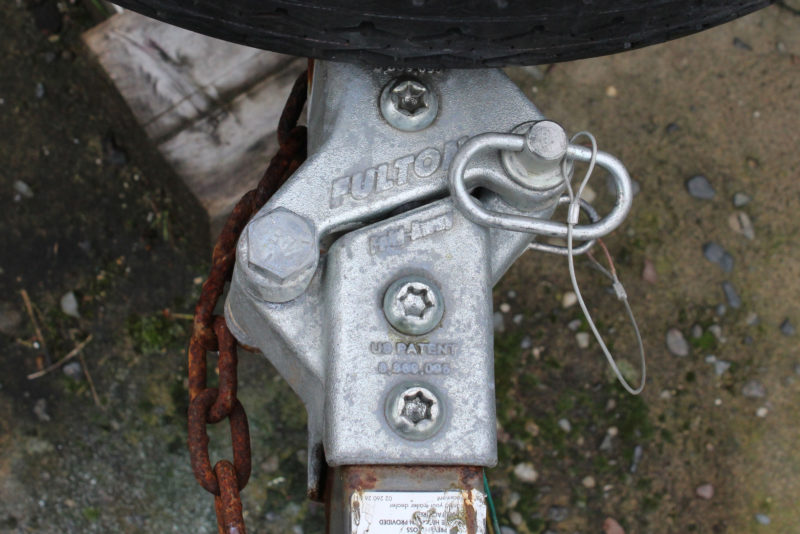
The hinge pin has its hairpin cotter secured by a short length of cable.
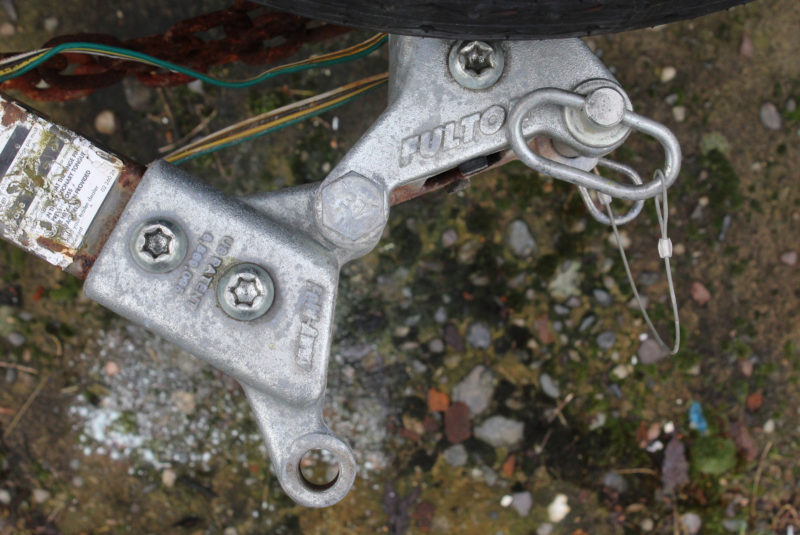
The wiring here is cable-tied beneath the tongue, but the hinge halves are open to the tongue sections so wiring can be routed internally.
Contrary to the manufacturer’s recommendations, I had to mount the winch and the jack on the tongue extension, and when I park the trailer I have to support the original tongue with some wooden cribbing before I can raise the jack and swing the tongue extension out of the sidewalk. The hinge has worked well for the six years I’ve been using it. Though I haven’t seen any signs of wear or loosening, there are some rust stains, but those are most likely from salt water pouring out through the main part of the ungalvanized tongue after an outing.![]()
Christopher Cunningham is the editor of Small Boats Monthly.
Fulton Fold-Away Hinges are available from a wide range of authorized dealers. The 2″ x 3″ model reviewed here is available from West Marine stores for $79.99.
Is there a product that might be useful for boatbuilding, cruising or shore-side camping that you’d like us to review? Please email your suggestions.
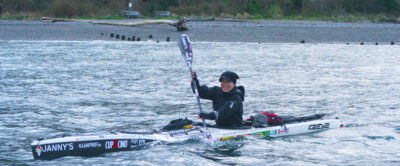
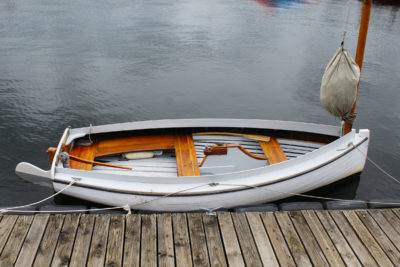
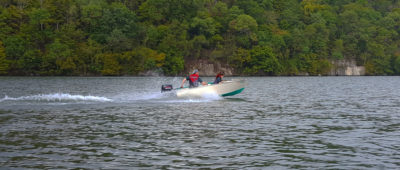

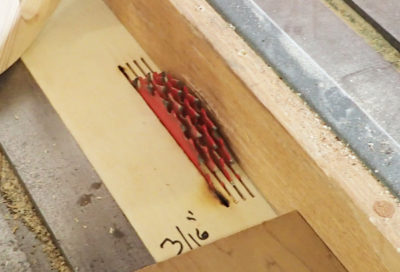
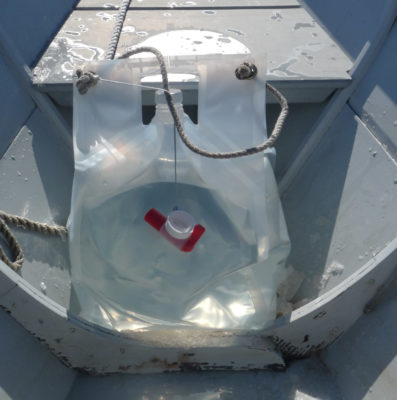
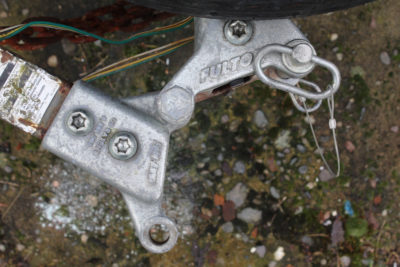
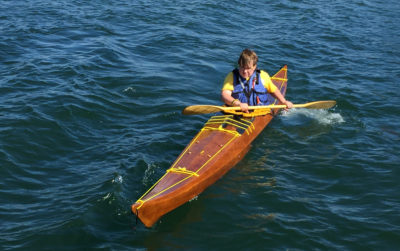
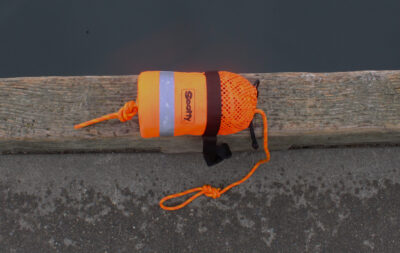
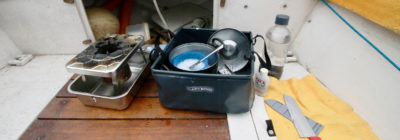
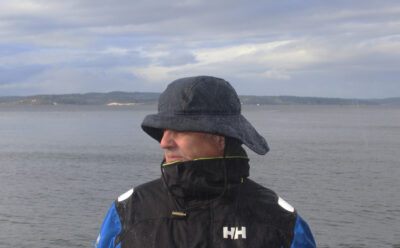
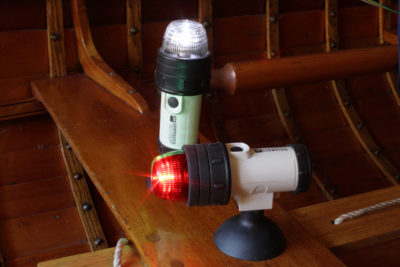
I like running the trailer wires externally after having had instances where my trailer wires got squirreled or moused. Outside isn’t pretty but maintenance sure is easy. One of my trailers is the use it for everything from a 21′ iceboat to a double decked row of kayaks with a ducker underneath. You do need to shift the winch strut, good to mark the trailer as to where it goes. The extension would work real well for this kind of use where you configure the trailer according to the boat.
Things one never heard of. I love it. It will make for easier winter storage inside a shed or portable garage, instead of leaving the front of the trailer exposed.
Thanks.